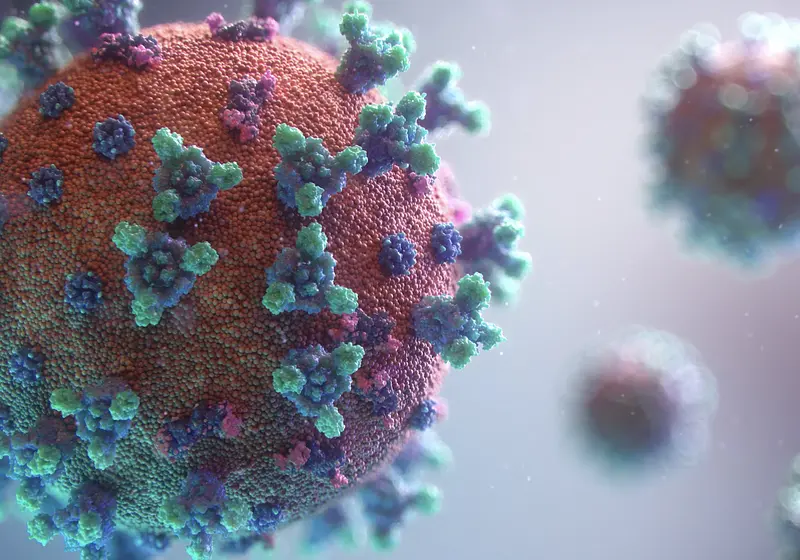The coronavirus SARS-CoV-2, which causes the COVID-19 disease, had taken our world by storm through the end of 2019 and throughout 2020. This virus was seemingly more dangerous and widespread than any other, and we were forced to shelter in our homes. This virus did not care about countries, boundaries, and demographics. It ended up crippling economies, shutting down small businesses and even larger companies, straining healthcare systems, causing supply chain and job disruptions, and, worst of all, claiming the lives of over seven million people.
History has shown us that it repeats itself in a cycle. With major pandemics or disease outbreaks occurring every hundred years (including the plague, cholera, and Spanish flu), it is high time we start learning from our mistakes.
Countries need to have protocols to handle diseases to protect people and manage other health-related crises. Some of the most significant issues that I will talk about are accurate and unbiased information being given to the public, having a surplus of medical supplies and essential food/equipment, allowing legislation to be passed quicker, and the role people can individually play.
The earliest response came from institutions that required masks, gloves, and social distancing, depending on the location. Initially, most people didn’t know much about the virus, and it started gaining traction after countries like China, Italy, and others in Europe started introducing lockdowns. Hospitals began to become overloaded in urban areas, and city/state governments in the US introduced testing and tracing measures and some lockdowns.

As Covid kept spreading, it became clear that testing and tracing would not stop this issue. So, many jobs switched to online formats, non-essential businesses closed temporarily, there were travel restrictions, and they implemented curfews/lockdowns. This situation has profoundly impacted people's mental health, as it forced them to remain in a confined space and prevented them from engaging in person with friends and the individuals they were accustomed to seeing regularly. There seemed to be no end, especially for students who had graduation canceled or school interrupted.
Most schools stayed entirely online for about a year until companies such as Pfizer, Moderna, and Johnson and Johnson in the US introduced a vaccine. Depending on the location, this lets students go back to school with vaccination, mask, and social distancing requirements. The pandemic underscored the critical importance of having robust healthcare systems with sufficient hospital capacity and resource management. Considering we’re in the digital age, looking into telemedicine and non-traditional healthcare is even more critical now.
Of course, the pandemic was generally a negative thing. Still, it brought up a lot of vulnerabilities for countries in their policy, which I think needs to be fixed. Every country should have an action plan for different classifications of diseases, depending on whether they’re minor epidemics or major pandemics.
A lot of deaths could have been prevented with earlier isolation and preventative measures. This was a massive disruption, with about 8 million deaths and 700 million cases. However, we learned how to use mRNA vaccines and data analytics in healthcare, which will be very useful the next time we face something like this.
Researchers and public health officials used data analytics to create models that helped forecast the trajectory of the pandemic, which helped make policy decisions and allocate resources to the demographics and regions that needed it most. Companies like Pfizer and Moderna utilized the power of mRNA technology to develop vaccines in record time. They compressed the traditional vaccine development processes, which used to take years, into months without compromising safety or efficacy.

One of the main things that happened was students had to stay at home, and parents stayed at home to work unless they were considered essential employees. This took a significant toll on children. They had a worse education less social interaction, and it seemed like they were living under a rock.
Mental health was a huge problem, as people were concerned for their own safety and the safety of their relatives, mostly older relatives. Also, social interactions are fundamental to a healthy mental state, and all that was taken away.
Canceled or limited in-person therapy sessions, overwhelmed healthcare systems, and increased demand for mental health services left many young individuals without adequate access to help. It was much harder to prioritize things besides COVID during the pandemic, and it seems like we never fully fixed the problems that COVID-19 caused, but rather, we moved on.
Parents, educators, and policymakers must prioritize the mental health of young individuals and provide them with the necessary support and resources. By addressing their unique challenges and creating a safe and nurturing environment, we can help reduce the long-term effects of poor mental health. Poor mental health can result in many problems, like violence.
 (Vladimir Fedotov from Unsplash)
(Vladimir Fedotov from Unsplash)
Not to mention the impact on extracurricular activities - The closure of schools also meant the suspension of in-person interactions with peers and teachers, as well as the cancellation of extracurricular activities. These students then had to turn to their computers or phones for a source of entertainment or just to pass the time. A lot of the time, doing so resulted in being influenced by everything they saw online.
This includes news, any information spread by others, and especially social media. These media sources were very damaging for people, especially young students since their minds are vulnerable to outside influences. This news overstated COVID-19 and made it the number-one priority for everyone, even when not necessarily so.
For example, much COVID-19 vaccine information was inaccurate, with botched studies or biases. Many cases and death counts may have been inflated due to Covid not being identified as a primary cause of death. All of this controversy led to more and more worry. Acknowledging that COVID-19 led to many of these problems, we can start addressing them properly.

















